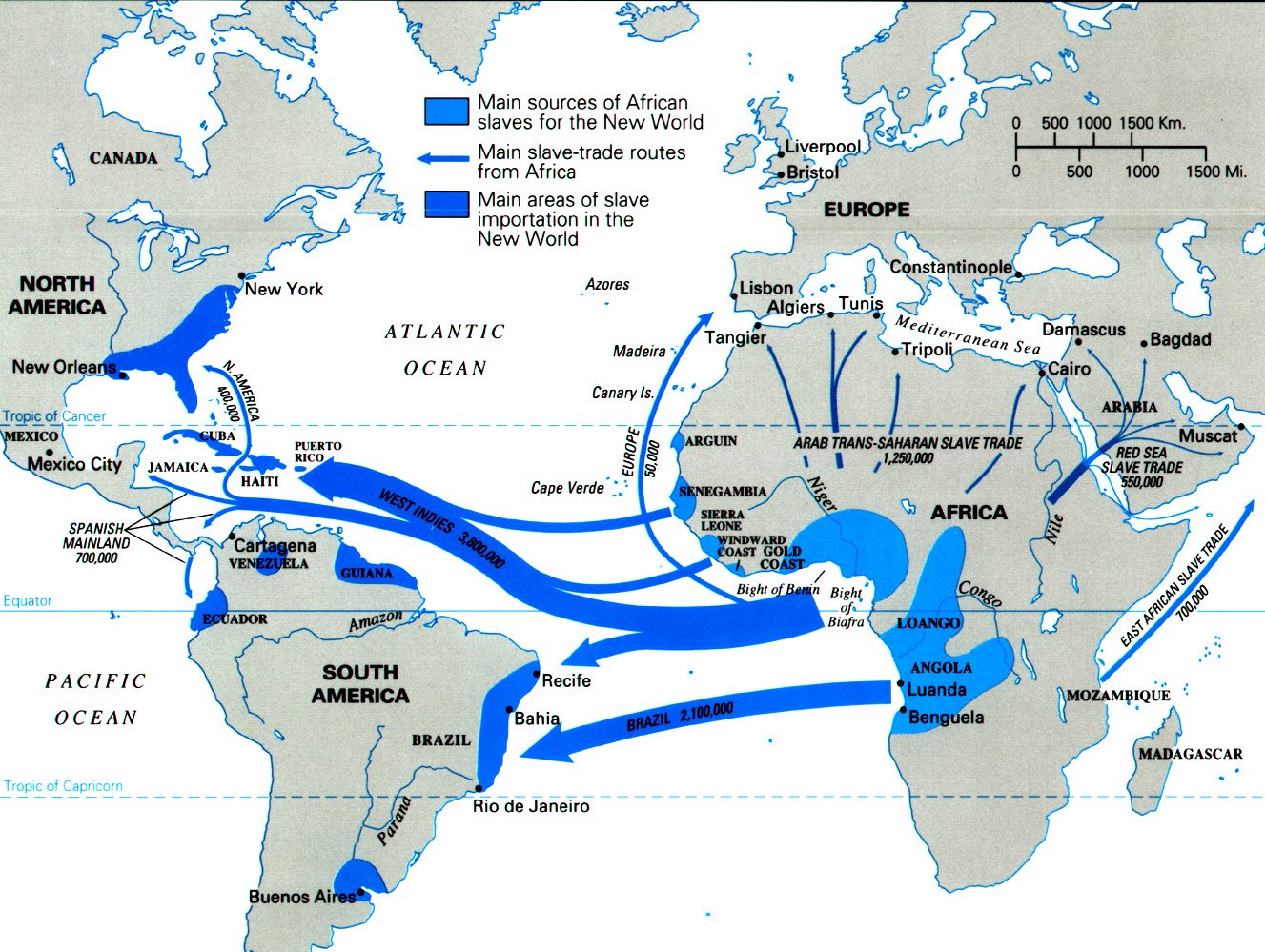Africa, a continent historically renowned for its abundant natural resources, diverse cultures, and captivating landscapes, witnessed a surge of commercial activity and European exploration during the 19th century. This era marked a turning point in Africa’s relationship with the world, as European powers established colonies, exploited resources, and brokered trade agreements that would profoundly shape the continent’s destiny for centuries to come.

Image: www.worldhistory.org
The dawn of the 19th century found Africa poised at the cusp of transformation. Colonial powers from Europe, driven by insatiable desires for wealth and expansion, cast their covetous eyes upon its shores. The continent became a coveted prize, a treasure trove of untapped resources and a potential market for European goods. Among the most sought-after commodities were ivory, gold, rubber, and slaves, all of which fueled the burgeoning industries of Europe.
To facilitate the extraction and trade of these lucrative resources, European powers established colonies and trading posts along Africa’s coasts and river systems. The Scramble for Africa, a period of intense rivalry and territorial acquisition, commenced. Britain, France, Germany, Portugal, Spain, Belgium, and Italy carved out vast swaths of the continent, exerting political and economic control over indigenous populations. Colonialism brought profound changes to African societies, introducing new forms of government, education, and religion while simultaneously disrupting traditional ways of life.
The exploration of Africa’s interior also gathered momentum during the 19th century. European explorers, driven by a thirst for knowledge and the desire to map uncharted territories, ventured into the continent’s vast and often inhospitable interior. Among the most renowned explorers of this era were David Livingstone, Henry Morton Stanley, and Richard Francis Burton. Their expeditions shed light on the geography, flora, and fauna of Africa, and their writings captivated the imaginations of Europeans back home.
In addition to European exploration and colonization, the 19th century also witnessed the rise of African kingdoms and empires. The Zulu Kingdom in southern Africa, led by the legendary Shaka Zulu, emerged as a formidable power. In West Africa, the Ashanti Empire and the Sokoto Caliphate exercised significant political and economic influence. These indigenous states engaged in trade with European powers, often on their own terms, and played a crucial role in shaping the continent’s political landscape.
The commercial and political interactions between Africa and Europe in the 19th century left an enduring legacy. The continent’s natural resources were plundered, and its peoples were subjected to exploitation and oppression. However, the era also sowed the seeds of African independence movements and ultimately contributed to the continent’s emergence as a global player in the 20th century.

Image: blackdemographics.com
Africa As Trade Mark In The 1800
https://youtube.com/watch?v=EyDONhvkfdk
Conclusion
Africa’s distinctive status as a trademark in the 19th century was indelibly etched by the convergence of trade, exploration, and colonialism. The continent’s allure as a source of raw materials and a potential market for European goods propelled the Scramble for Africa, resulting in the imposition of colonial rule across much of the continent. Nonetheless, amidst the exploitation and oppression, African kingdoms and empires continued to thrive, playing a vital role in shaping the continent’s political and economic landscape. The interactions between Africa and Europe during this period sowed the seeds of future developments, ultimately contributing to Africa’s journey towards independence and a prominent position on the world stage.






